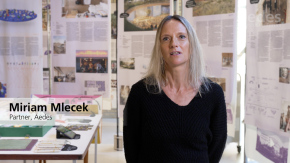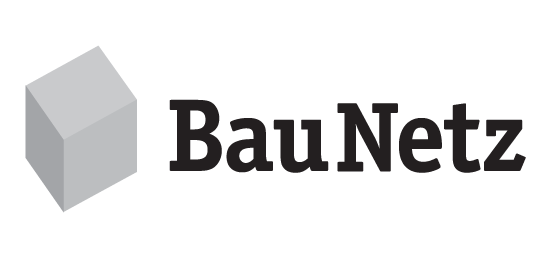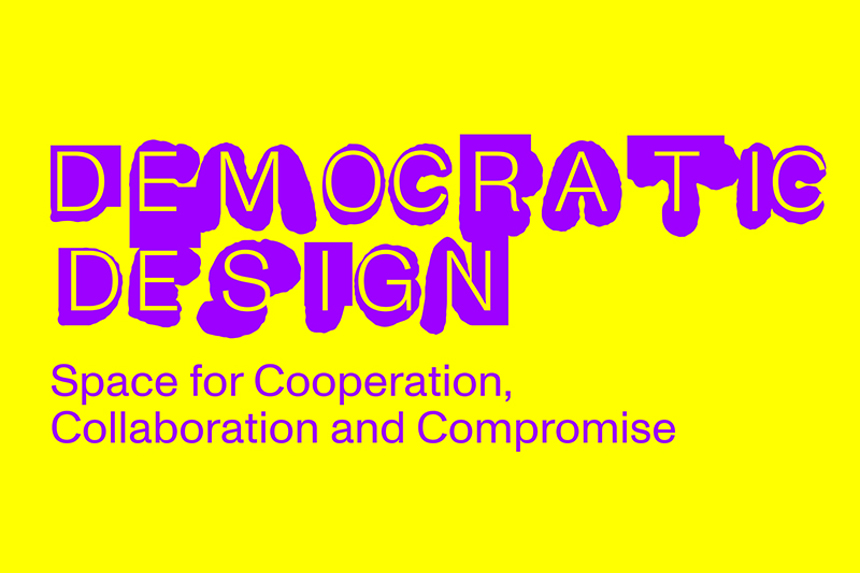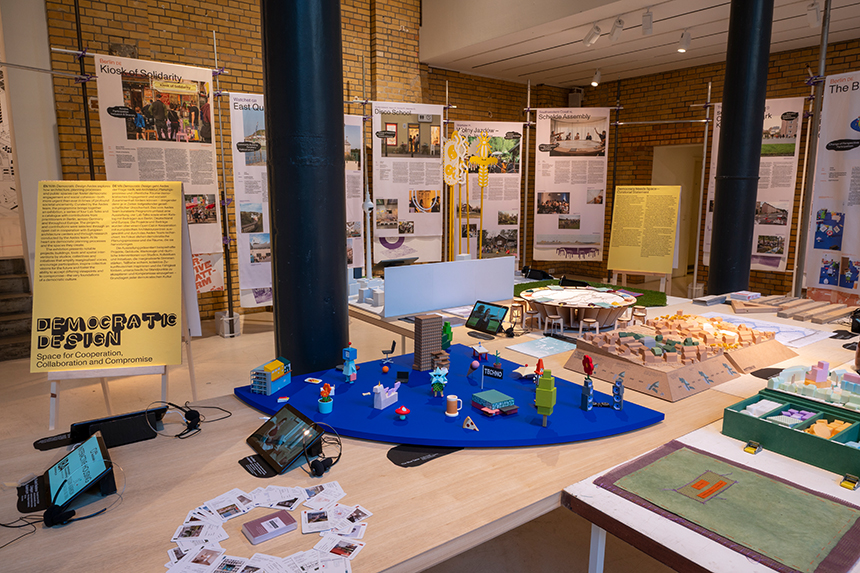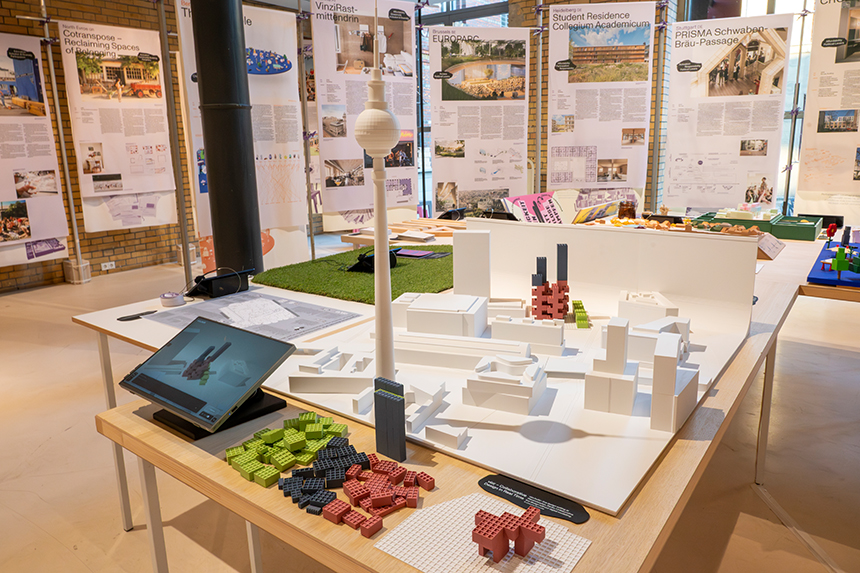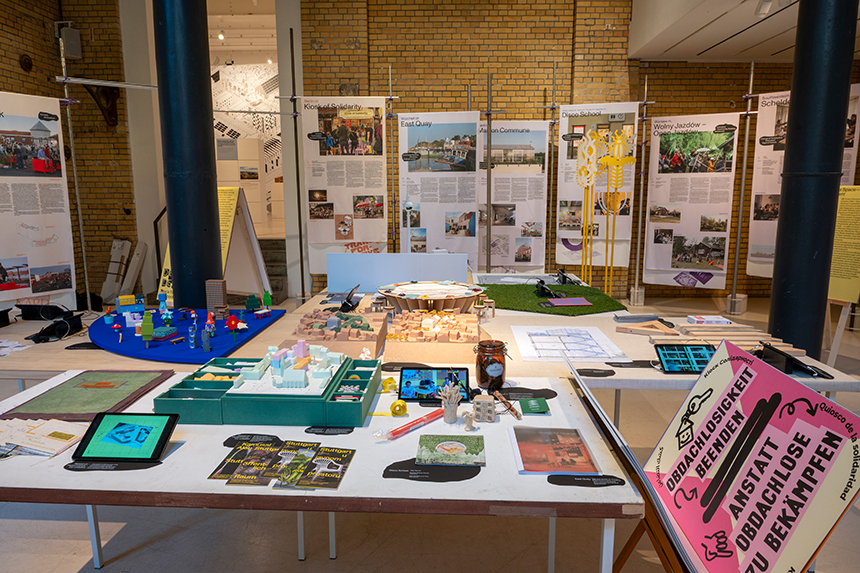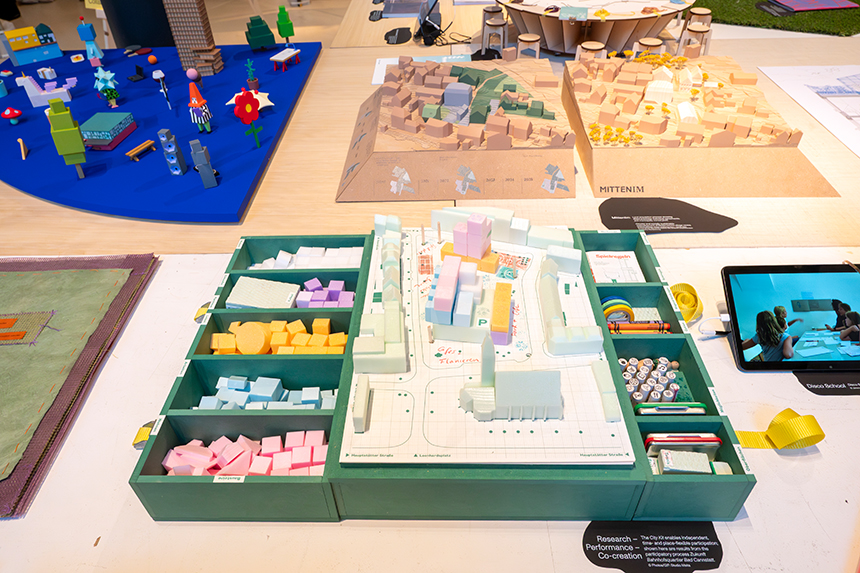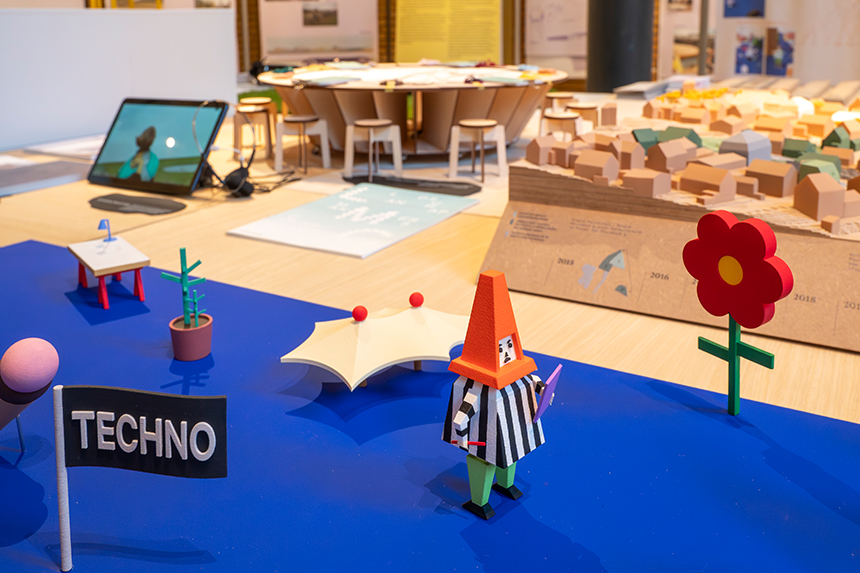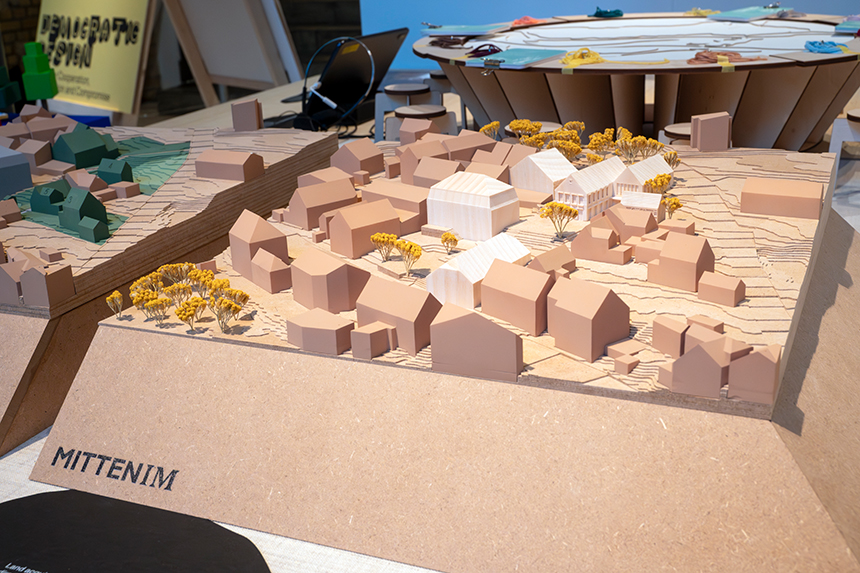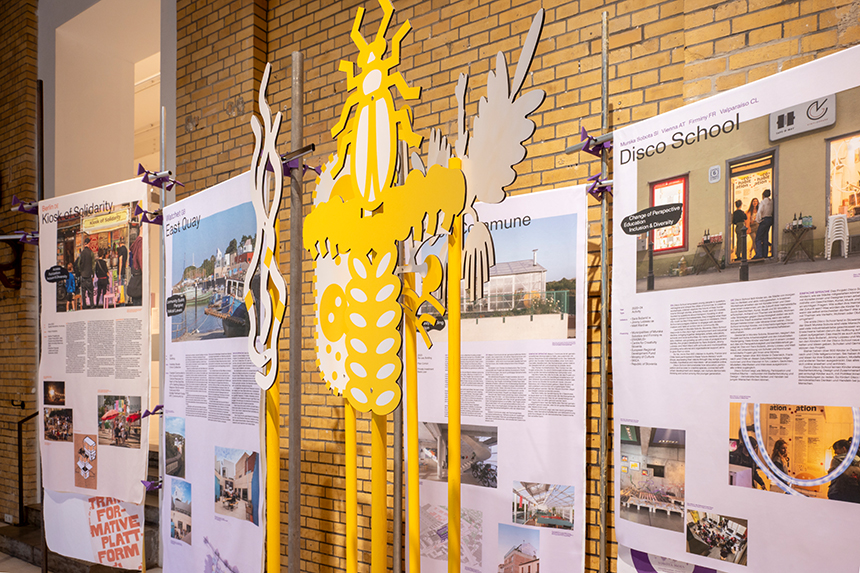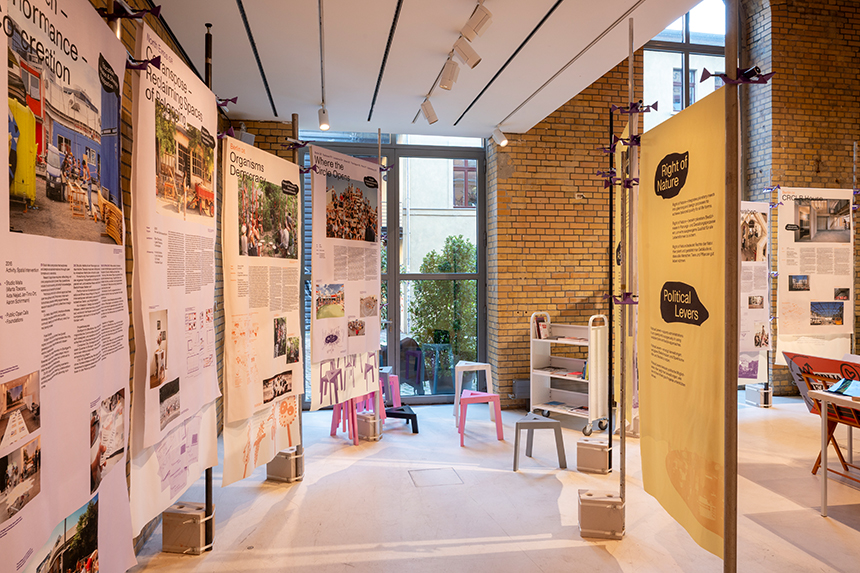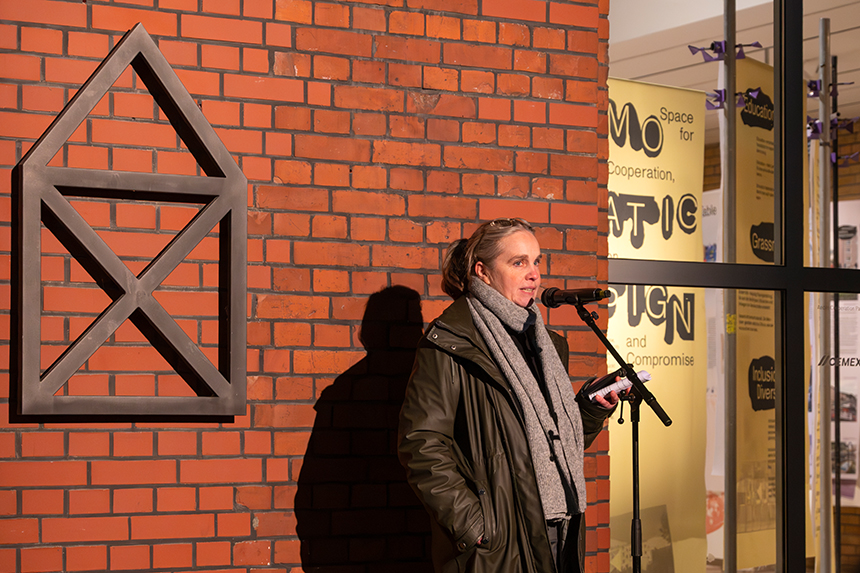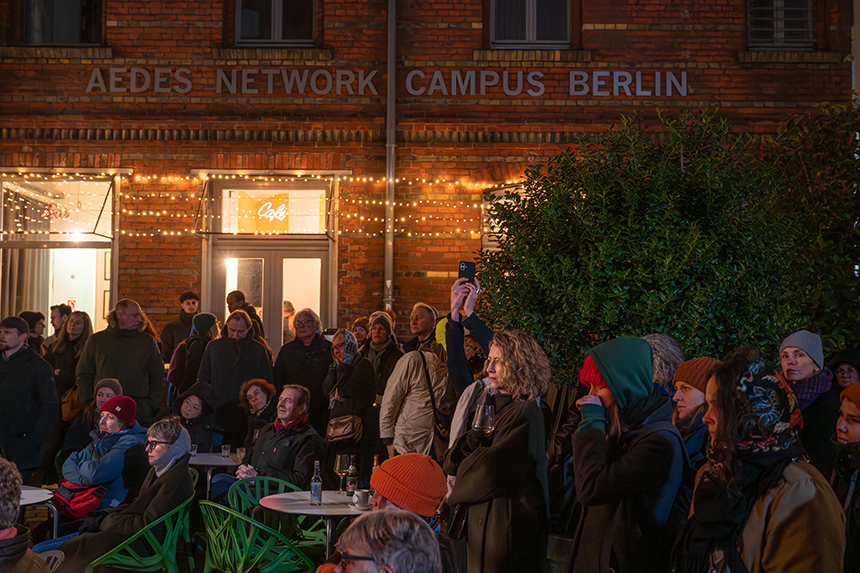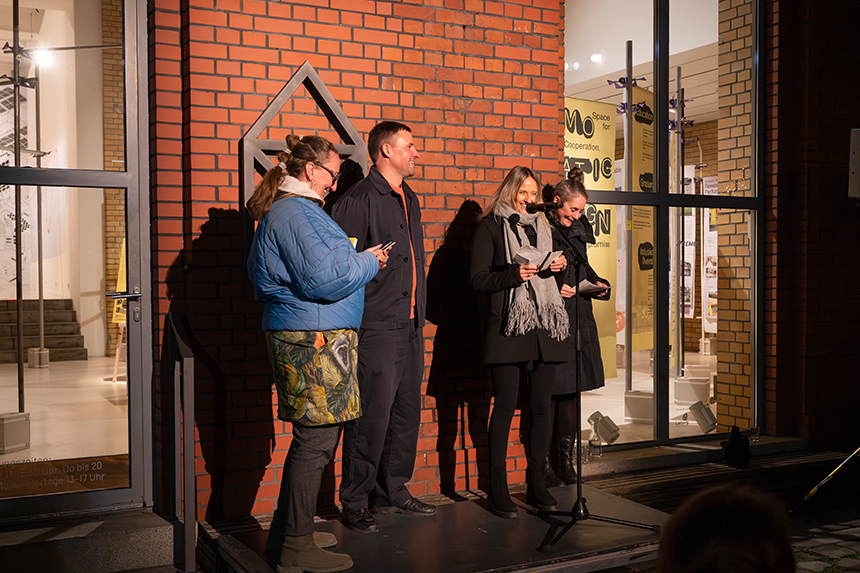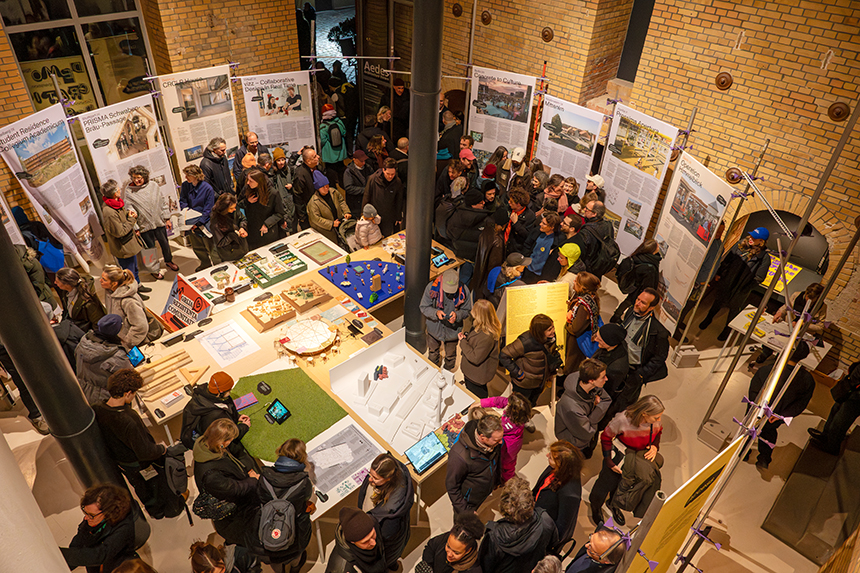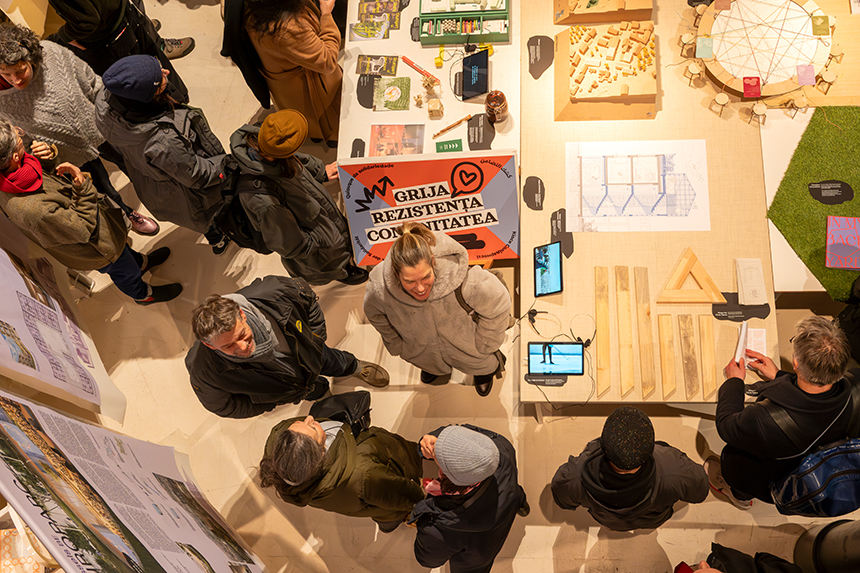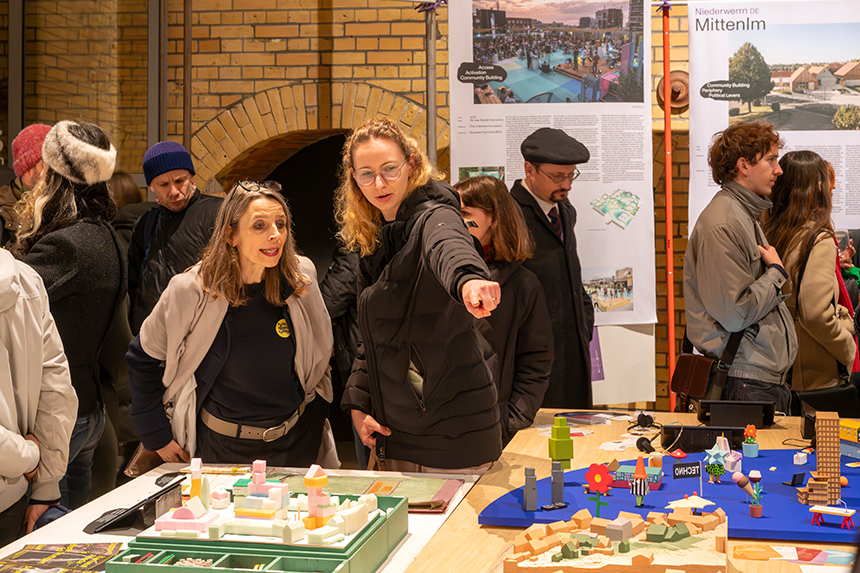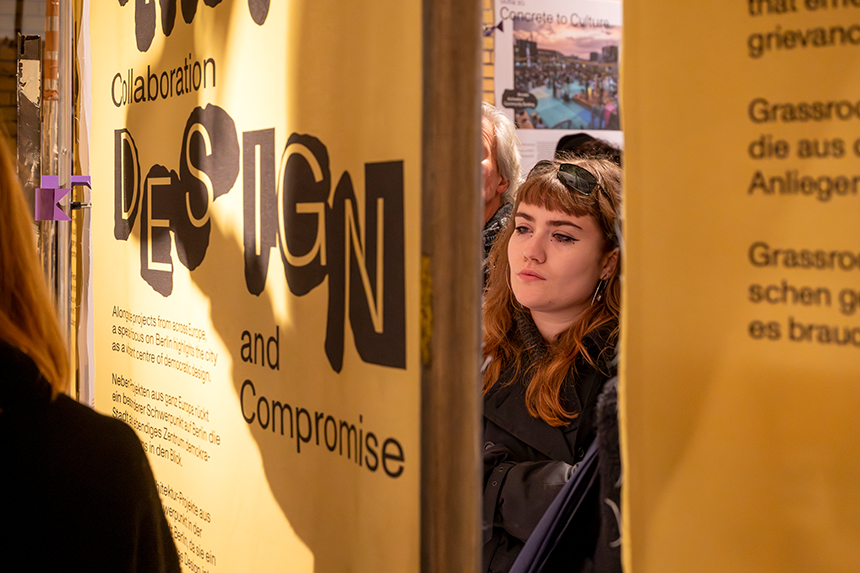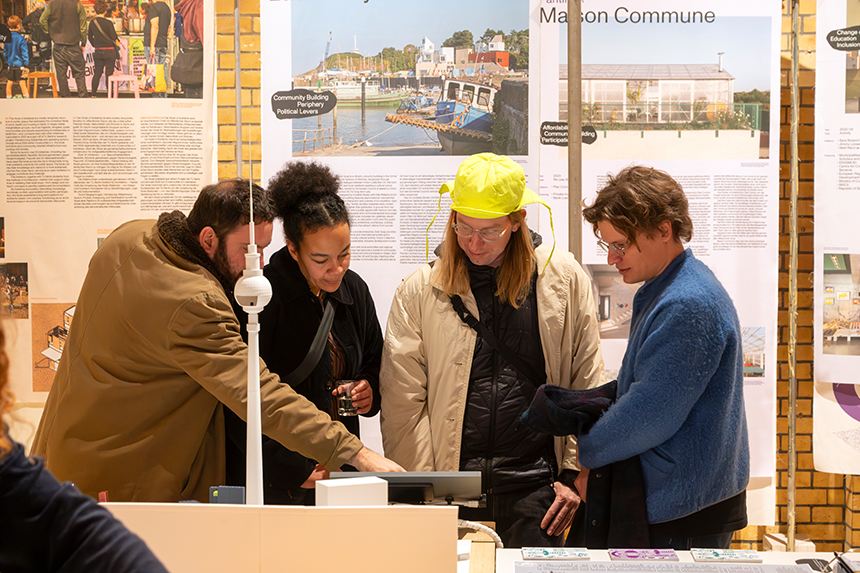In Democratic Design – Space for Cooperation, Collaboration and Compromise, Aedes explores how architecture, planning processes and public spaces can foster democratic engagement and social cohesion – both more urgent than ever in times of profound societal uncertainty. The programme consists of an exhibition, a series of four Lab Talks and a catalogue featuring contributions from practitioners in Berlin, Germany and across Europe, selected through an open call in collaboration with European architecture centres and through research conducted by the Aedes team.
At the core of Democratic Design are democratic planning processes and the spaces they create. The presented projects amplify marginalised voices, encourage participation and inspire collective visions for the future. Dialogue and exchange are essential conditions for democracy, cultivating the ability to accept differing viewpoints and to compromise – the very foundations of democratic culture. This conviction underpins Democratic Design – Space for Cooperation, Collaboration and Compromise, curated by the Aedes team and presented at Aedes in Berlin.
Our democracy is currently experiencing difficult times. Many people have lost faith in civic engagement, withdrawing instead into protest or resignation. Others seek greater inclusion but are denied equal access.
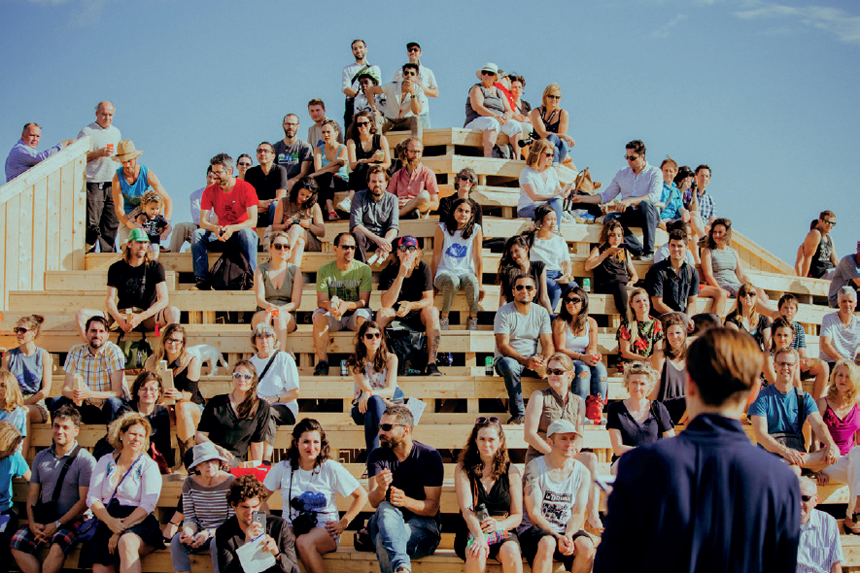
Mont Réel, CA, 2017 © Gupta Ashutosh
Participatory Planning
Democracy requires tools that spark interest, inspire involvement and enable participation. Architecture and urban planning hold significant potential as drivers of fairer and broader inclusion – particularly for those whose voices remain unheard in political discourse and the shaping of public space. They also open pathways into crucial debates about democracy and the future of our shared living environment. Democratic Design presents exemplary democratic planning processes that make these principles tangible.
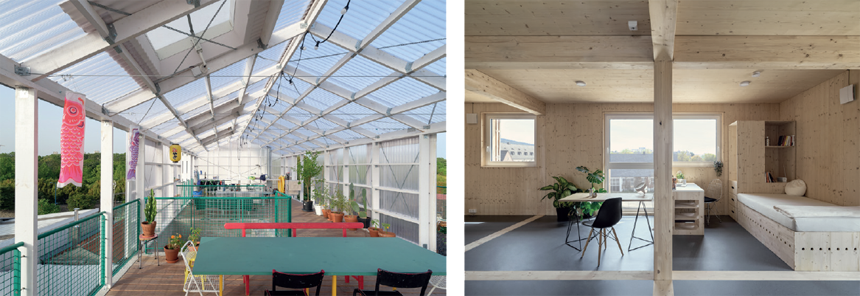
Maison Commune, Pantin, FR, 2023 © Javier Agustin Rojas | Student Residence Collegium Academicum, Heidelberg, DE, 2023 © Thilo Ross
Democratic Spaces
A democratic society equally depends on well-designed public and architectural spaces that support encounter, dialogue and exchange. Democratic Design showcases outstanding spaces that actively foster constructive discourse, mutual respect and social behaviour.
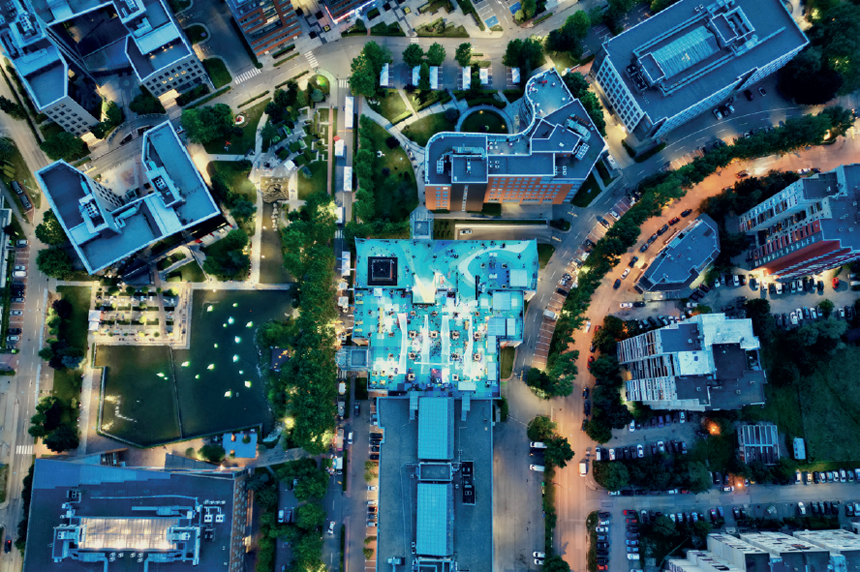
Concrete to Culture, Sofia, BG, 2023 © The Collective Foundation
Collaborative Models
The growing complexity of societal challenges calls for innovative, holistic and inclusive approaches. Architects can play a central role in this, as architecture and urban planning have always relied on teamwork and compromise. Emerging forms of collaboration and the rise of young, transdisciplinary collectives signal a shift towards a cooperative culture that prioritises the common good and challenges established hierarchies. Democratic Design introduces practitioners who are exploring alternative models of collaboration and collective decision-making as a foundation for future-oriented design.

Schelde Assembly, Southwestern Coast, NL, since 2021 © Jord de Kat Angelino | MittenIm, Niederwerrn, DE, 2024 © Sebastian Schel
Multifaceted Programme
The exhibition presents notable projects, buildings, tools and spatial interventions by studios, collectives and initiatives, showing how inclusive planning and design processes can strengthen democratic participation and a shared sense of responsibility for the built environment. Alongside projects from across Europe, a special focus on Berlin highlights the city as a vibrant centre of democratic design. The exhibition design – developed by ANA (architecture) und Rimini Berlin (graphic design) – reflects the core ideas of Democratic Design, using a variety of media – texts, photographs, plans, films, objects, games and models – to create an accessible and engaging experience. A reading corner with selected literature invites visitors to explore further. The exhibition is presented in three languages – German, simple German and English – and is aimed at a broad, diverse audience.

researching - performative - co-creative, Stuttgart/Berlin, DE, since 2016 © Studio Malta | The Blue Table, Berlin, DE, 2024 © Office ParkScheerbarth, photo: Studio Eyecandy | Kiosk of Solidarity, Berlin, DE, since 2023 © Monika Keiler
The four-part Lab Talk series brings together practitioners from architecture, urban planning, culture, civil society, research and academia, examining how inclusive planning processes, well-designed public spaces and innovative educational approaches can foster democratic engagement.
The accompanying catalogue offers a deeper dive into the topic. In addition to documenting the exhibited projects, it features specially commissioned essays that provide additional perspectives. The catalogue is published in English.
Projects in the exhibition
Concrete to Culture, Sofia, BG, 2023
The Collective Foundation
Cotranspose – Reclaiming Spaces of Belonging, North Evros, GR, 2025
Eleni Tsompanidou / Ligeia Papaioannou
CRCLR House, Berlin, DE, 2023
CRCLR GmbH / Stiftung Edith Maryon / die Zusammenarbeiter / TRNSFRM eG / Impact Hub / Campus Cosmopolis e.V.
Disco School,Murska Sobota, SI / Vienna, AT / Firminy, FR / Valparaíso, CL, 2020–24
Sara Božanić, SI / Jimmy Loizeau, GB / Matt Ward, GB
East Quay, Watchet, GB, 2021
Invisible Studio / Onion Collective
EUROPARC, Brussels, BE, 2021
Coldefy, FR / CRA-Carlo Ratti Associati, IT / Ensamble Studio, ES / NL Architects, NL / JDS Architects, DK / UTIL, BE / Ramboll, DK
Kiosk of Solidarity, Berlin, DE, since 2023
Kiosk of Solidarity
Maison Commune, Pantin, FR, 2023
Plan Común
MittenIm, Niederwerrn, DE, 2024
Municipality of Niederwerrn / Schlicht Lamprecht Kern Architects
Operation Himmelblick, Berlin, DE, since 2020
stadtgewitter e.V.
Organisms Democracy, Berlin, DE, since 2019
Club Real / Organismendemokratie e.V.
PRISMA Schwaben-Bräu-Passage, Stuttgart, DE, 2023
PRISMA, Fläche e.V. / STUDIO CROSS SCALE / City of Stuttgart
Prossima Apertura, Aprilia, IT, 2021
Orizzontale
Research – Performance – Co-creation, Stuttgart/Berlin, DE, since 2016
Studio Malta (Marta Toscano, Aida Nejad, Jan-Timo Ort, Aaron Schirrmann)
Schelde Assembly, Southwestern Coast, NL, since 2021
Studio Inscape (founded by Charlotte von Meijenveldt, Willie Vogel, Eileen Stornebrink, Maarten Meijer)
schwarzwurzel / Community Park Kopernikus, Thuringia, DE, 2010-15 / since 2017
Karolin Leipold / Lucio Nardi / cultural association schwarzwurzel / residents' group Zusammenwachsen / Ralf Appelfeller
Student Residence Collegium Academicum, Heidelberg, DE, 2023
Collegium Academicum GmbH
The Blue Table, Berlin, DE, 2024
Office ParkScheerbarth (Benjamin Scheerbarth, Moojin Park)
VinziRast-mittendrin, Vienna, AT, 2013
Students from the University of Vienna / Vinzenzgemeinschaft St. Stephan / gaupenraub+/-
vizz – Collaborative Design in Real Time, virtual, DE, 2024
Johannes Schwutke / Matthias Faber / Rebekka Pottgüter / Gustavo Rodrigues in collaboration with HPP Architects
Where the Circle Opens, Berlin, DE / Toulouse, FR / Lausanne, CH / Ghent, BE / The Hague, NL / Porto, PT / Gothenburg, SE, since 2010
Constructlab
Wolny Jazdów – Open Jazdów, Warsaw, PL, since 2013
Inhabitants of Jazdów settlement
The Aedes Theme: Democratic Design
Democratic Design is one of sixteen key themes through which Aedes structures its built environment discourse in relation to societal and planetary challenges – in the case of Democratic Design, with a focus on the role of architecture as a politically engaged spatial practice. The talks, exhibitions and workshops curated within this framework not only form a living archive but also reflect how debates and priorities have evolved over time.
Aedes Catalogue
English, 10€
> Order here
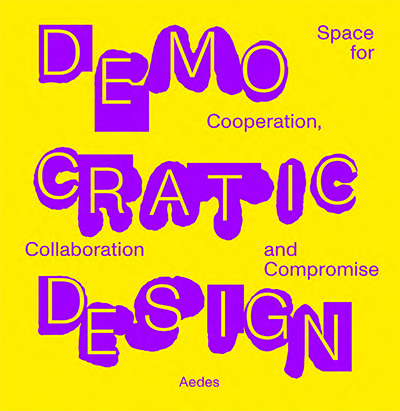
Sponsors
Democratic Design is made possible through the generous support of the Berlin Capital Cultural Fund (Hauptstadtkulturfonds) and additional support from the ZEIT STIFTUNG BUCERIUS.
Aedes Cooperation Partner
Cemex

